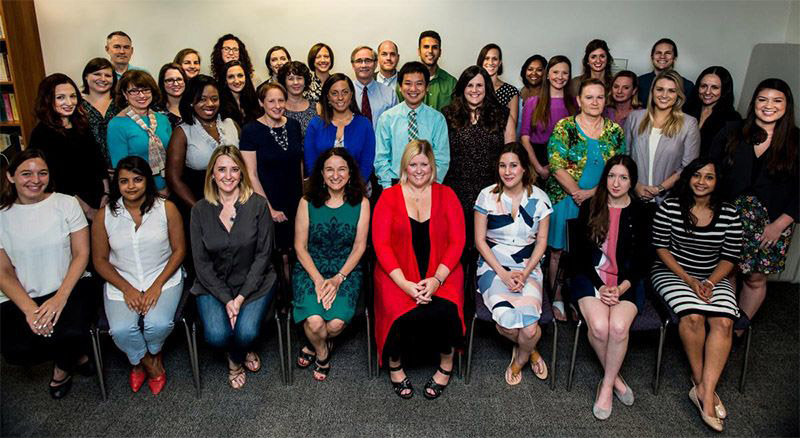Welcome to Tulane Child and Adolescent Psychiatry!
As the tenth oldest medical school in the U.S., and one of the oldest continually accredited Child and Adolescent Psychiatry training programs in the country, Tulane has enjoyed an outstanding reputation for almost two centuries. Combining Tulane's name recognition with the national recognition of the Tulane Child and Adolescent Psychiatry Department’s work and training in areas such as infant mental health and childhood trauma and neglect, it is no wonder that graduating from this program leads to outstanding careers in academic, community or private practice in child and adolescent psychiatry.
There are several different training pathways to a career in child and adolescent psychiatry (CAP), each of which offers a unique training experience based on your interests. At Tulane, you can enter into the traditional general psychiatry training program first, and apply to enter into our CAP training program at the end of your third or fourth year of general psychiatry training. Additionally, we are one of the nine sites in the country that offers the Triple Board Program, in which residents are trained in pediatrics, psychiatry, and child and adolescent psychiatry.
Overview
Our program is organized to teach the basic and clinical sciences of infant, child, and adolescent psychiatry. Fellows work with faculty to provide quality care in diverse treatment settings including hospital, community, and school-based practices. The Tulane CAP Section includes internationally known infant mental health clinicians and researchers; fellows have opportunities to develop clinical expertise working with very young children. Fellows value the strength of the faculty’s perspectives as clinicians, researchers, and child advocates. Psychotherapy is a priority here at Tulane. Fellows have weekly outpatient psychotherapy clinic, where they can implement evidence-based treatments under close supervision.
Additionally, we dedicate one full day to academic activities. Fridays are protected academic time that consist of weekly supervisions, grand rounds, and interdisciplinary didactics to provide foundations for clinical learning in CAP. Didactics include case based learning of psychopharmacology and psychopathology, development, infant mental health, adolescence, neurobiology, cultural psychiatry, experiential evidence-based therapy training, specialized clinical modules, ethics, and forensic child and adolescent psychiatry, as well as a clinical issues course and intensive individual supervision that often includes video review of therapy.
Benefits: 2 weeks of vacation per 6 months (4 weeks per year) may be taken with faculty and training director approval at any time.
Training Opportunities:
- Longitudinal psychotherapy experiences throughout the two years of training.
- Tulane Comprehensive Assessment and Treatment Team (TCATT):
- Tulane Infant Mental Health Services (TIMHS)
- Tulane Center for Autism and Related Disorders (TCARD)
- Gender & Sexuality at Ruther Fertel Tulane Community Health Center
- Early Psychosis Intervention Clinic (EPIC)
- Community Psychiatry at Metropolitan Human Services District (MHSD) & Crescent Care FQHC
- School-based mental health through Access Health FQHC
- Forensics and Juvenile Justice Intervention Center

